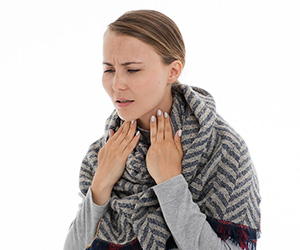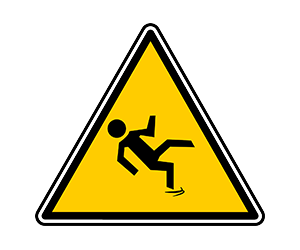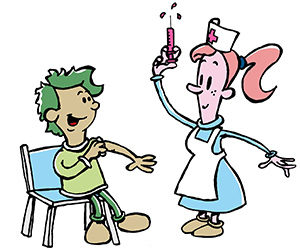Yes, We’re Open

Southwest Family Physicians, Inc. is open and providing the following services for Established Patients:
- Telemedicine
- Virtual Visits
- Phone Call Appointments
Please contact us for more details.
Photo by Tim Mossholder on Unsplash
The Importance of Physical Activity

Physical activity or exercise can have immediate and long-term health benefits. Physical activity can help reduce your risk of developing certain diseases such as Type 2 Diabetes and heart disease.
Strive to exercise for a minimum of 30 minutes per day.
Doing some physical activity is better than doing none. If you currently do no physical activity, start by doing some and gradually build up to the recommended amount.
Benefits of Regular Physical Exercise
- Reduced risk of heart attack
- Weight management
- Lower blood cholesterol levels
- Lower risk of Type 2 Diabetes
- Lower blood pressure
- Stronger bones, muscles, and joints
- Lower your risk of falls
- Better recovery after hospitalizations
- More energy, better mood, better sleep
Types of Exercise that are Beneficial
- Walking
- Riding a bike
- Swimming
- Walking in a pool
- Aerobics classes
- Hiking
- Running
- Cardio machines (stepper, elliptical, stair climbers, treadmill)
- Playing tennis
- Jumping rope
Ways to Increase Physical Activity
- Walking or riding a bike instead of driving in a car
- Getting off of a bus stop earlier and walking the rest of the way
- Walking children to school
What Causes a Sore Throat?

- Viruses, like those that cause cold and flu
- Allergies
- Smoking or exposure to secondhand smoke
- The bacteria group A strep, which causes strep throat
Of these, infections from viruses are the most common cause of sore throats. Symptoms of sore throat whether caused by virus or bacteria can be similar.
Symptoms that suggest a virus is the cause of the illness instead of bacteria:
- Cough
- Runny nose
- Hoarseness
- Conjunctivitis or pink eye
The most common symptoms of strep throat are:
- Sore throat that starts very quickly
- Pain when swallowing
- Fever
- Red/swollen tonsils that may have white patches or streaks of pus
- Tiny red spots on the roof of the mouth
- Swollen lymph nodes on the neck
Here are some ways to feel better if you have a sore throat:
- Suck on popsicles, ice chips, or lozenges
- Use a humidifier or cool mist vaporizer
- Gargle with salt water
- Drink warm beverages and plenty of fluids
- Remember to always wash your hands to help prevent the spread of germs.
Schedule an appointment to see a provider if you have symptoms of strep throat.
Tips on Preventing Falls

Did you know that 1 in 4 Americans over the age of 65 fall each year? Falls are the leading cause of deadly injury and the most common cause of nonfatal trauma-related hospital admissions among older adults.
Common reasons why older adults fall are:
- Chronic health conditions
- Vision impairments or muscle weakness
- Balance impairments
Below is a list of items to look for in your home to help reduce the risk of falling.
Floors
- Remove rugs or use non-slip backing so rugs won’t slip
- Keep objects off the floor and stairs
- Coil or tape electrical cords next to wall to prevent tripping
Stairs and Steps
- Fix loose or uneven steps
- Turn on lights when moving
- Fix loose handrails
- Use rubber treads on uncarpeted stairs
Kitchen
- Move items high in cabinets to bottom shelves near waist height
- Never use a chair as a stool
- Use a sturdy step stool with a bar
Bedroom/Bathroom
- Place lamp close to bed
- Use night lights
- Put non-slip mats in tub or shower
- Install grab bars in tub/shower and next to toilet
Other helpful measures to prevent falls:
- Exercise regularly to help strengthen and improve balance
- Get up slowly after sitting or lying down
- Wear sturdy shoes with non-slip soles
- Ask your doctor or pharmacist about medications that make you sleep or dizzy
How to Prepare for Flu Season

The flu is a contagious respiratory illness caused by influenza viruses. The flu usually comes on suddenly with symptoms such as fever, cough, sore throat, body aches, headache, chills, and fatigue. Flu season mainly occurs in the fall and winter with peaks between December and February.
The Centers for Disease Control and Prevention (CDC) recommend a yearly flu vaccine as the most important step in protecting against influenza and its serious complications. The flu vaccine can reduce flu illnesses, doctor’s visits, and missed work and school due to the flu. It can also decrease flu-related hospitalizations.
Everyone 6 months of age and older should get a flu vaccine every year before flu activity begins. CDC recommends getting vaccinated by the end of October however receiving a flu vaccine during any part of flu season can be beneficial.
In addition to getting a seasonal flu vaccine, you can take every day preventative actions like staying away from sick people and washing your hands frequently. Also, if you are sick with the flu, stay home from work or school to prevent spreading the flu to others.
People at high risk of flu complications include young children, pregnant women, people with chronic health conditions, and people over the age of 65. Infants younger than 6 months old are at high risk of flu illness but are too young to be vaccinated. People who live with or care for infants should also be vaccinated.
Be sure to schedule your flu shot!
